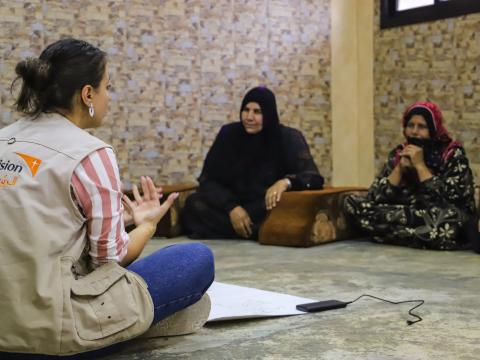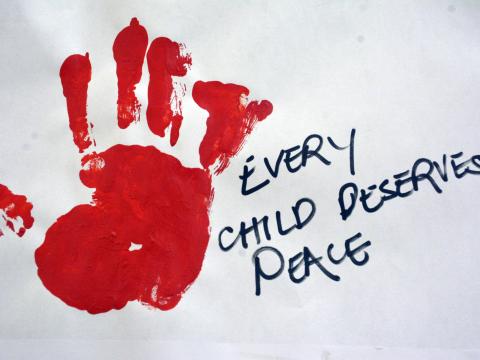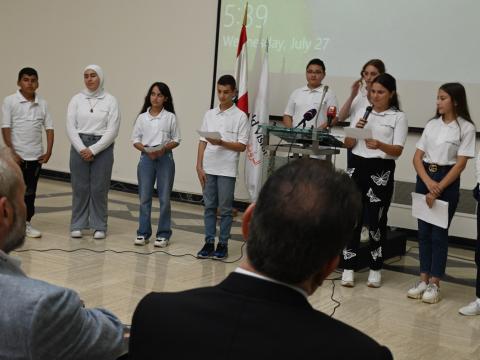
Campaigning lessons from ending violence against children in Lebanon
<<Read the 2022 It Takes A World To End Violence Against Children global campaign progress report here>>
Josephine explains a 360-degree campaign approach that can adapt and change is the secret to realising change for children.
Five years ago we were challenged to join our charity’s global campaign to reduce violence against children in our country. We are now being challenged to join a campaign to reduce child hunger and malnutrition, so recently I have been reflecting on what worked first time around and what should be repeated.
Pick a relevant and timely issue
First, the fact that World Vision’s global campaign, It Takes A World To End Violence Against Children, really gave us the freedom to decide, within the broad theme, what was relevant and timely for us in our context in Lebanon was really helpful.
Originally, we targeted violent child discipline in the home. It was something all the NGOs (non-governmental organisations) were noticing, but couldn’t do anything about because it was largely a cultural issue. As a faith-based organisation, once we leveraged our strong connections with faith leaders to get them behind the idea of promoting positive, non-violent parenting we convened a task force comprising several government ministries, local NGOs, INGOs, UN agencies and more to work to ban violent child discipline.
Don’t be afraid to pivot
The media and other influential figures also got behind the campaign because it was such a widespread problem, but over time the national context changed. By January2023, the growing economic crisis led to schools closing until a million children were out of education and into such dangerous scenarios as child labour and early marriage. This had to become the new topic of our campaign—so we pivoted. School closures were the clear and present danger to our nation’s children because it both threatened their present well-being and also their futures.
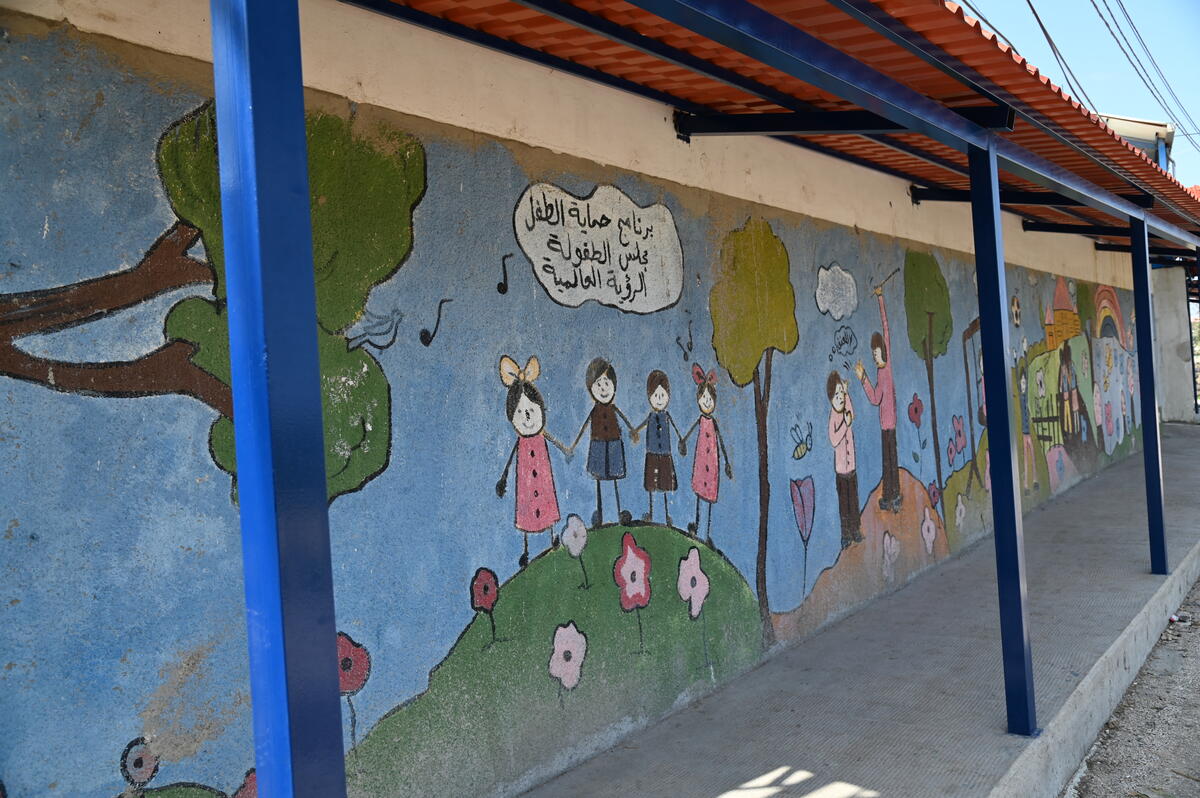
Evidence is essential
For both the violent child discipline and school closure issues we started by gathering evidence around the cause and effects. We did national segmentation research on violent child discipline in the home and discovered that not only is it as common as we suspected, but its affects children across all classes, education-levels, levels of wealth. The evidence gave us ideas about where to focus our efforts most. It gave us evidence to hand to those with the power to make changes to laws and cultural norms.
When our experience on the ground, and our media monitoring suggested to us that the national economic crisis was hitting families hard, we did research among parents. They told us that education, which has been prioritised in Lebanon for centuries, was being replaced with just putting food on the table—survival over education. Children were already dropping out of education to work even before schools started closing because teachers weren’t being paid a living wage. The evidence also prompted us to launch emergency education programmes for all the children in the areas where we worked.
Children and youth must be heard
We also interviewed children between 6 and 8-years-old about the impact of the economic crisis on their daily lives. Plus, we handed over World Vision Lebanon’s social media platforms to older children to tell their stories of hardship. Their first-hand insights—food price increases; only being able to eat one sort of food; growing mental health issues; and fear for the future—could not be ignored.
When we asked children: “What do you want to do about the education situation?” they said they wanted to meet in person with the national powerholders—ministers and parliamentarians. Child rights in Lebanon are borderline non-existent, but we invited representatives from the myriad of political and religious groups to a forum to listen to children told them: “This situation is freaking us out. What are you going to do if the schools don’t open next year?”

It was powerful stuff, and successful: teachers got their salaries increased and schools reopened. Sadly, the value of the dollar shot up recently against the Lebanese pound, so we’re back in the same situation we were before with teachers not being paid enough.
A campaign must be 360-degree
As we consider this next five-year global campaign on hunger and malnutrition, we are going to take the same approach: a 360-degree approach. We will bring lobbying, advocacy, grant acquisition, communications and marketing colleagues, senior leadership and more together to do stakeholder mapping, to decide key goals and tactics. A campaign that seeks to improve children’s lives must be everyone’s concern, not just advocacy or policy colleagues. Once we have a plan we will also engage key partners and, of course, child and youth.
A campaign should not just stop
We’re really excited by a ‘Cost to the State’ paper that we’re drawing up at the moment which will predict how much, ten years from now, it will cost Lebanon if they don’t fix current education and hunger and malnutrition problems. We are not ending our efforts to end violence against children, but we are pleased to start campaigning on another major threat to children in our nation: malnutrition and stunting.
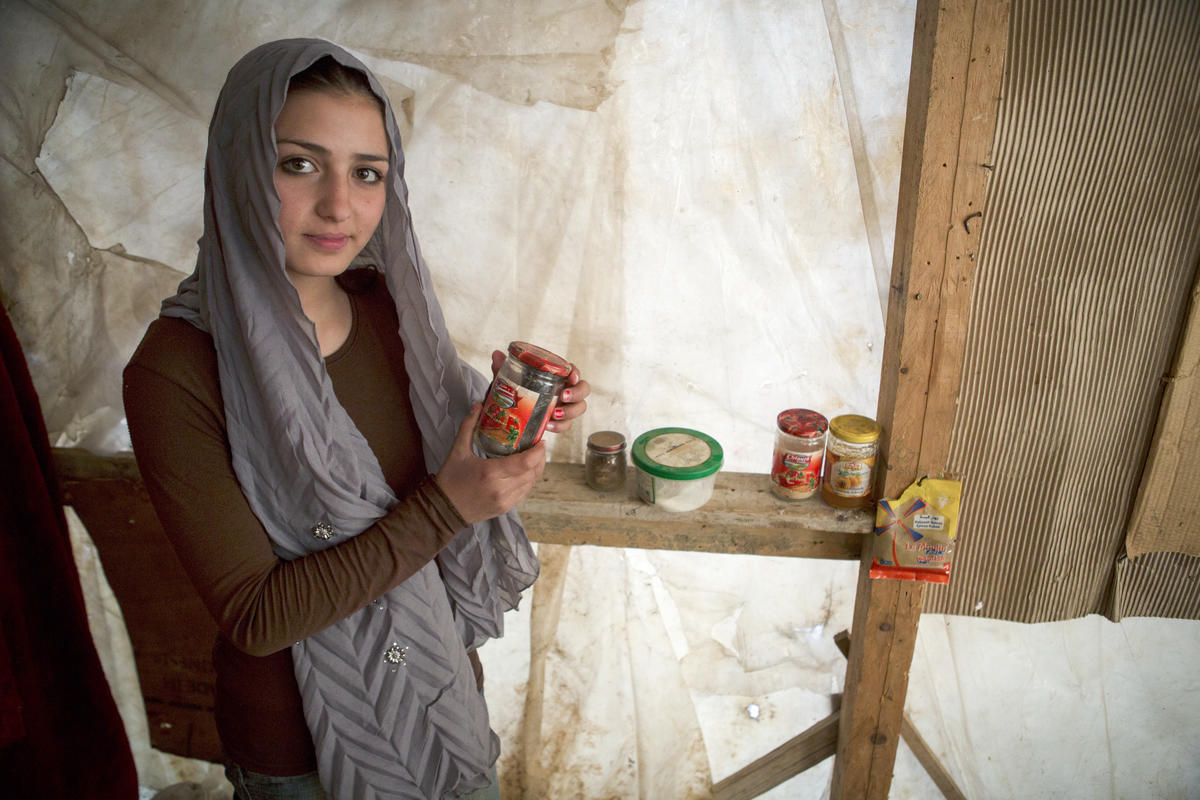
When I travelled around my country to undertake previous research I met seven-year-olds who were the size of three-year-olds because their parents could only feed them tomato paste sandwiches. So, World Vision and our partners will have a campaigning foot in both issues going forward—we can do nothing else for our nation’s children.
For more information about World Vision’s work in Lebanon click here and its involvement in the It Takes a World campaign click here. More information about World Vision’s It Takes A World To End Violence Against Children can be found here.
Josephine Haddad Public Affairs and Communications Manager at World Vision Lebanon.
